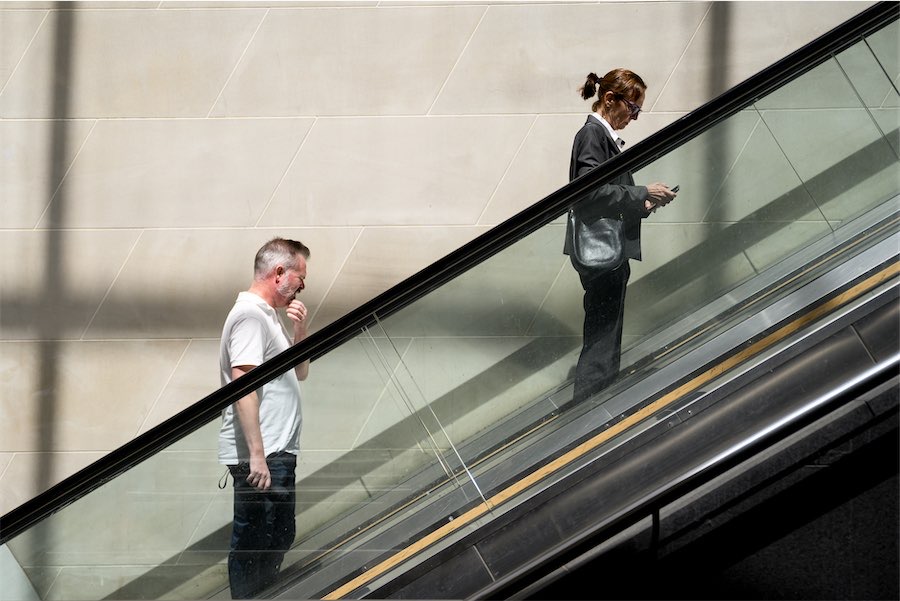
By Maeve Bannister
Women’s rights and gender equality remain important issues this federal election, as female voters weigh up options for policy promises that will improve their lives.
Yet as domestic violence continues to disproportionately impact them, the campaign lead-up to the May 3 election has so far been quiet on the issue.
The Albanese government has faced criticism after handing down a pre-election budget that included almost nothing new in funding for domestic and family abuse.
But Minister for Women Katy Gallagher agrees they remain among the biggest challenges facing Australian women in 2025.
“We’ve been focused on driving economic equality for women because it’s clear the link between economic insecurity, women’s health and their safety,” she says.
“From the Commonwealth’s perspective, it’s about trying to make sure we are shifting the dial where we can.”
In government, Labor has initiated a range of policies to drive women’s economic participation, boost healthcare access and improve safety.
From July 2025, new mums and dads will receive a superannuation boost on their government-funded paid parental leave, with about 180,000 Australian families expected to benefit.
The most recent budget replaced the childcare activity test with a three-day guarantee, allowing families to access 72 hours of subsidised care per fortnight, regardless of parents’ level of work.
Labor has also promised a $573.3 million package for more pelvic pain clinics and greater Medicare rebates for both menopause health assessments and long-term contraceptive insertion.
“We are seeing progress, female worker’s wages have increased by $217 a week and participation is at its peak,” Senator Gallagher says.
“Driving gender equality is a fundamental priority of our economic policy and has been in this entire term.”
Labor has also committed more than $4 billion in women’s safety and delivering the national plan to end violence against women and children since its launch three years ago.
“Something I’m really looking forward to getting back into is looking at how our systems are designed to work against women particularly in the safety space,” Senator Gallagher says.
“There’s a whole lot of work we need to do in those systems to better support women.”
But more investment is needed for prevention and behaviour change programs and to fully fund frontline services, according to Greens spokesperson for women Senator Larissa Waters.
“Women’s safety is the biggest issue because so many women are experiencing violence at home or harassment on the street or discrimination at work,” she says.
“One in five women are still being turned away from a frontline service and the least the federal government can do is increase their funding.
“This is also an issue for men, it’s about men’s behaviour and I think our male leaders and all men in the community should be talking about this.”
The Greens have announced an annual $1 billion allocation for domestic and family violence services as it’s what the sector says it needs to meet demand.
With polling indicating the possibility of a hung parliament, the party hopes it will be called on to help form government.
If so, Senator Waters says, women would be at the centre of the policy position.
“In a minority government one of the things we would push for would be universal, free early childhood education as a measure that invests in kids and women,” she explains.
“Childcare is really useful for little ones but it also helps women return to the workforce and just like school is free, we think early childhood education should also be free, no questions asked.”
In the second week of the campaign, Opposition Leader Peter Dutton was forced to apologise for proposing a work-from-home ban on public sector employees.
The coalition matched Labor’s half-a-billion dollar women’s health investment and last week proposed a $20 billion Regional Australia Future Fund that aims to help improve childcare and early learning access across rural, regional and remote communities.
But advocates from The Parenthood say the opposition is yet to commit to any affordability measures, and costs remain a major barrier for regional families.
“The proposed fund is a crucial first step in the right direction but we are keen to see the finer details and a comprehensive policy that ensures every regional, rural and remote child can access quality early learning,” campaign director Maddy Butler says.
Mr Dutton also denies the coalition has issues with representing women, saying he has the same number of female shadow cabinet members as Labor has in government.
While women make up 56 per cent of Labor candidates at the upcoming election, less than a third of the coalition’s are women.
Additionally, only one in six – 16 per cent – of coalition female candidates are in safe or fairly safe seats, compared to 28 per cent of men.
Shadow minister for women Sussan Ley did not respond to requests for an interview.
Who can be trusted?
In a world of spin and confusion, there’s never been a more important time to support independent journalism in Canberra.
If you trust our work online and want to enforce the power of independent voices, I invite you to make a small contribution.
Every dollar of support is invested back into our journalism to help keep citynews.com.au strong and free.
Thank you,
Ian Meikle, editor









Leave a Reply